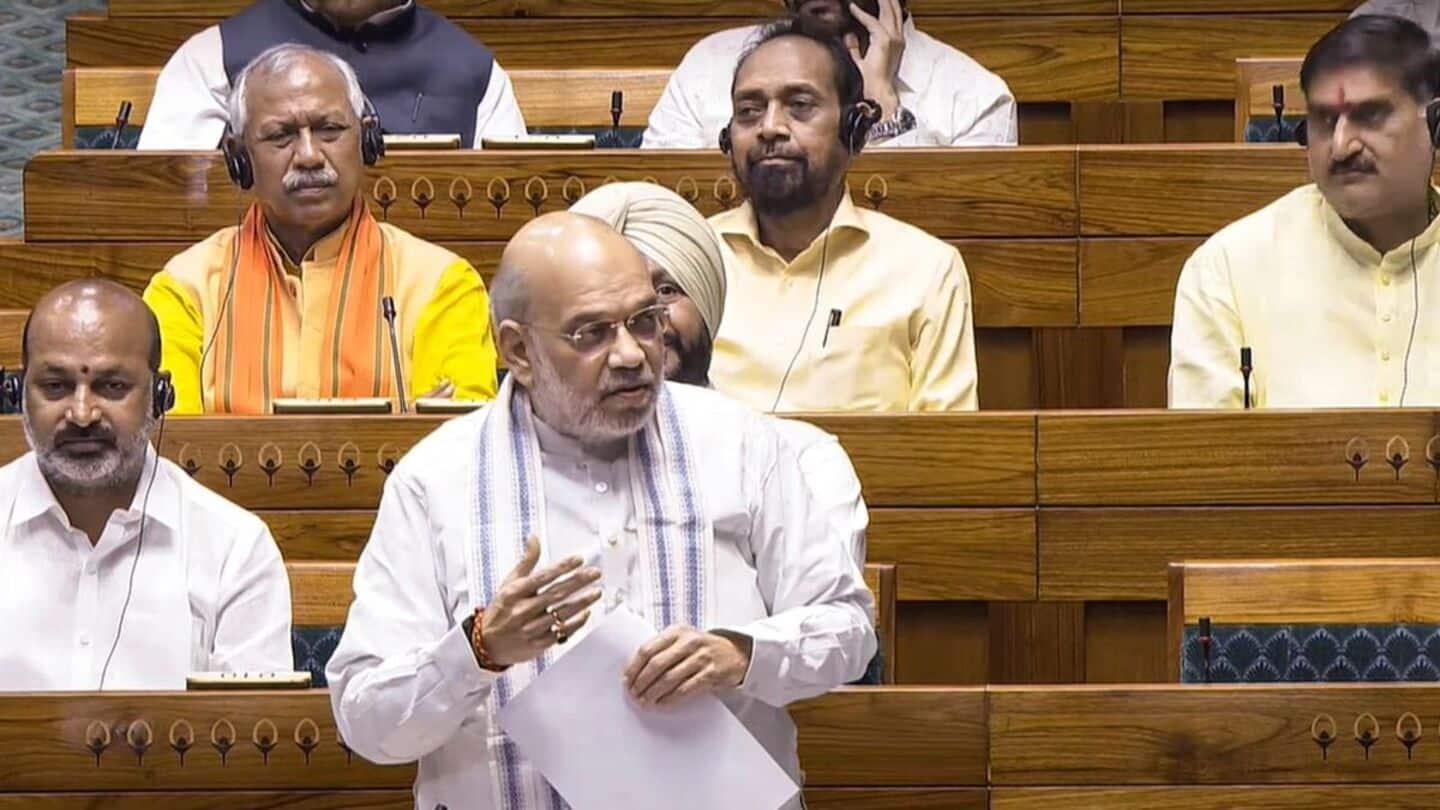
'India not dharmshala': Shah as Lok Sabha passes immigration bill
What's the story
The Lok Sabha has passed the Immigration and Foreigners Bill, 2025, which seeks to regulate the immigration, entry, and stay of foreigners.
Replying to a debate on the bill, Union Home Minister Amit Shah said if someone comes to India to contribute to the development of the nation, they are always welcome.
However, he had a stern warning for those who pose a threat to the country.
"The nation is not a dharmshala," he said.
Economic impact
Bill to boost economy and security
The bill is set to ensure up-to-date information about every foreigner visiting India, thus enabling close monitoring of their purpose of visit and duration of stay.
"The bill will ensure a close monitoring of everyone who visits India, why do they visit India and how long they want to stay in India. It is absolutely necessary to know the details of every foreigner visiting India," he said.
Penalties
Stricter penalties under proposed legislation
The Immigration and Foreigners Bill of 2025 proposes strict action against anyone using fake passport or visa for entering, continuing, or exiting India.
Offenders could be jailed for a term ranging from two to seven years along with a fine ranging from ₹1 lakh to ₹10 lakh.
The bill also requires hotels, universities, other educational institutions, hospitals, and nursing homes to report details about foreigners to track overstaying foreigners.
Government powers
Empowering central government under new legislation
The proposed legislation authorizes the government to monitor places frequented by foreigners and mandates owners to shut premises or allow usage under certain conditions.
It suggests strict punishments for foreigners entering without valid travel documents, with penalties including imprisonment for up to five years or a fine up to ₹5 lakh, or both.
The bill will replace four existing laws—the Passport (Entry into India) Act, 1920; Registration of Foreigners Act, 1939; Foreigners Act, 1946; and Immigration (Carriers' Liability) Act, 2000.